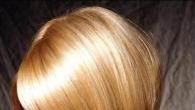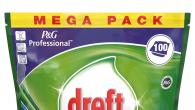Over time, car covers lose their original view. Gradually, they become dirty, torn and fade in the sun. This is very unpleasant, because the interior becomes untidy, causing discomfort. Sewing car covers will help to solve this problem, which makes it possible to completely transform the interior of the car. As a result of changes, the interior becomes more beautiful and attractive.
A few advantages in favor of sewing leather cases
We list the other benefits that tailoring leather covers gives the car owner:
the ability to choose colors and textures of materials in full accordance with personal preferences;
creation of additional compartments and convenient pockets for placing documents or CDs with your favorite music;
reasonable prices, affordable for many buyers who want to give their car an exclusive look.
High quality Italian leather cases
Our company carries out tailoring of leather covers on the car. We only work the best masters capable of bringing to life almost any ideas of the customer. Carrying out tailoring of covers for cars in Moscow, we use genuine leather Italian production, which is characterized by high strength, softness and elasticity. It perfectly retains heat and does not lose its performance from moisture.
We accept orders for tailoring of individual car covers
Today we will tell you how to sew car covers with your own hands. Patterns for this operation can also be prepared independently. After all, if the car is operated intensively, then sooner or later you will definitely have to change the upholstery to a new one.
You can do this in a car shop or buy ready-made covers in a store, but in the first case it will be expensive, and in the second there will be no individuality. Therefore, the most profitable option would be independent cutting and tailoring.
Among the variety of fabrics in stores, it is necessary to choose the most practical materials for use. Upholstery made of leather or its artificial substitutes has a large number of fans. It is easy to take care of and wear is not as intense. However, in the cold season, leather upholstery does not retain heat. It also does not tolerate sudden changes in temperature.
A set of covers made by yourself
Also, you can sew a cape on a car seat with your own hands from polycotton. This material combines the positive properties of polyester and natural cotton. The fabric is machine washable and easy to care for.
When using velor, you can make inserts from other materials. This will emphasize the dignity of the fabric and give individuality to covers or capes.
Popular are fur upholstery made of natural and artificial materials. Big choice materials and colors will help to create any image for the car interior.
Preparing for the operation
Before you start sewing covers or cutting them out, you need to prepare the tools:
- sewing machine;
- a set of overcasting needles and pins;
- cutting chalk or marker;
- tailor's meter;
- tailor's scissors and a construction knife.

Pattern for universal covers
Preliminary measurements are taken from the car seats. In order to transfer all patterns to paper, you can use newspapers or landscape sheets glued on one side with adhesive tape. Some beginners use a large area oilcloth, however, it is not very convenient to work with it.
When transferring the dimensions to the pattern, you need to remember to add 1-2 cm to the seams on all sides.
Tailoring process
After you have prepared a pattern of covers for a car with your own hands, you need to start connecting the parts. When stitching, you can additionally strengthen the seam with a strong insert made of leather or nylon tape. This will ensure the durability and practicality of the covers.
The main fabric should not be too soft. This can give a baggy appearance to the product. For shaping, you can side inserts made of a more rigid material, providing a stronger frame for the entire structure, as well as diluting the design with a new texture.
 Pattern for the bottom of the chair
Pattern for the bottom of the chair  Pattern for the front seat
Pattern for the front seat  Side and rear sofa
Side and rear sofa  Headrest pattern
Headrest pattern
Ribbons, elastic bands or hooks are necessarily added to finished products for good fixation. With their help, the covers do not slide off the seats.
When forming a pattern and sewing it together, it is required to observe the structural features of the back sofa. It may have an armrest in the middle. Care must be taken to ensure that new covers do not reduce the convenience of the car and allow you to enjoy all the advantages of the design.
The rear passenger seat is often made in two parts for reclining and access to the trunk. Thus, long loads can be transported. New covers should take into account this feature of cars. When cutting and stitching, you need to close the chair on all sides with new capes.
Security
On foreign cars, end-face airbags can be installed. In order not to reduce the level of protection for passengers and the driver, it is necessary to ensure that the seams are stitched with weak threads at the exit points of the air races. You can also leave neat machined slots for this operation.
If you bought a new car - you just NEED removable seat covers - because this will reliably protect the car interior from wear marks, abrasions, tearing of material along power seams and burns from cigarettes. And when the time comes for the sale, its next owner will thank you for the well-preserved interior, which will certainly affect the value of the car. If your car is not new, then new car covers will hide the errors of the old upholstery and significantly update the look of the cabin.
As a rule, any car covers bought in a store or on the market are universal: they can fit the seats loosely, puff up somewhere, or not completely cover the upholstery of your seats. On such covers, the elements of their fasteners are visible, and the elastic bands that hold them stretch and tear over time, the covers themselves “bubble” or wrinkle, and, in the end, hopelessly crumple and tear. Custom-made covers that we make will look almost like the original upholstery of the cabin - so well they will be sewn, adjusted to the silhouette of the seats and stretched during installation.
Tailoring of car covers to order
We will make removable covers for your car at a reasonable price, and we will put them on the seats - for FREE! The seat covers will be custom made to fit your seat and will look great in your car. On our website you can choose a color scheme that is consistent with the color of the car.
We will also take into account your wishes regarding the choice of materials from which covers and their models will be made. You can order certain additions to the standard covers: pockets on the backs, trim, leatherette sidewalls, a special model of head restraints or a rear seat separation roller. You can see examples of completed work on the website.
We recommend that you order covers made of automotive velor (with a sealing liner made of specially glued foam rubber) produced in the USA, Canada and European countries, or special types of leather substitutes. Car covers made of autovelor with a combination of leatherette, colors and shades of your choice will look great, which will not only protect the interior of your car, but also give it a new original look.
If you are tired of giving your car seats to the dry cleaner once again, it may be time to think about purchasing special protective capes. Of course, you can buy covers at any auto supply store. But isn't it more interesting to sew them yourself? After all, this way you will definitely know that the material is of high quality, and the seams are carefully worked out. In addition, you can make a pattern yourself and choose a color scheme in accordance with your taste and style of the entire car. An equally useful acquisition is an awning that protects the car from the sun, dust and moisture. Making them with your own hands is very simple, for this you do not even need special tailoring skills.
Why do you need car seat covers?
Car seats get dirty very quickly. They appear on them greasy spots, crumbs, dust deposits. The pile can roll up, and the overall appearance of the seats will not be very attractive. To protect yourself from all these problems, you just need to protect the seats with special covers. Such capes have many advantages:
- protect seats from cracks and scratches;
- do not allow the tight-fitting seats to fade in the sun;
- are cleaned of dust;
- they are easy to remove for washing;
- create comfort in the car;
- allow the driver to express their individuality.
You can even sew multiple covers different types and colors, and then change them to suit the mood, the weather or the season.
Making a chair cover with your own hands
Sewing a seat cover yourself is not too difficult. The whole process can be divided into several stages:
- choice of case type and material;
- removal of seat measurements;
- pattern making;
- cover sewing.
Choose the type of cover
First of all, decide what kind of cover you need. All of them can be divided into several categories:
- capes-shirts;
- model covers;
- knitted covers;
- massagers;
- heated covers.
Cape-shirt - one of the most versatile and popular types of covers for motorists. It got its name because of the specific style, which really resembles an ordinary undershirt. They are convenient and practical: they are easy to remove and clean from dirt. In winter, sitting on them is much warmer and more comfortable than on cold leather seat upholstery. In addition, with proper selection of colors, such covers will look very stylish in the interior of the car. Choose a shade close to the color of the seats to make the covers as discreet as possible, or create a special accent with a contrasting color.
Model covers are made individually for each seat. They sit tight and exactly repeat the shape of the chairs. They are quite difficult to take off and put on for washing. You can order such covers only in special stores or automotive studios.
Knitted capes in their properties resemble T-shirts, but they are made not from ordinary fabric, but from yarn. If you have crochet experience, try making a cozy and original cover for yourself.
Massage capes differ not only original view but also beneficial to the body. It's no secret that a person's back is under great physical stress and can be very tired after a hard day's work. But with the modern rhythm of life, not everyone will have free time to visit a doctor. This is where massage therapists come in. They can be divided into two types: passive and active.
Passive massagers were very often found on the seats of cars in Soviet time. They consist of wooden balls or cylinders strung on a frame that point to your back and neck as you move.
But now active massagers are gaining more and more popularity. Outwardly, they look like ordinary T-shirts, but inside they have a special roller or vibration mechanism. It comes into action when you plug the cape into the cigarette lighter. With such a cover, the time spent in traffic jams and at traffic lights will fly by unnoticed.
Covers made of wooden elements cool quickly at low temperatures. Therefore, it will not be very comfortable to use them in winter.
And, of course, you can not ignore the heated covers. Outwardly, they are similar to T-shirt capes, but at the same time they have a heating element that makes the seat warm even in the coldest weather.
Material selection secrets
The second step is the choice of material for the future product. Today, the automotive accessories market offers a wide range of fabrics and materials for sewing covers. Each of them has its own unique properties, Advantages and disadvantages. Choose material according to your taste preferences and features of the vehicle. Among the most popular materials are the following:
- natural and artificial leather (eco-leather);
- natural and artificial fur;
- neoprene;
- velours;
- polycotton;
- suede leather;
- vinyl.
Genuine leather is one of the most popular materials for cases. It looks expensive and stylish, while it is quite easy to care for it. At proper care leather cape will serve you long years and UV protection will keep it from fading in the sun. However, this material has a couple of significant drawbacks: for example, the skin does not retain heat well, which will create inconvenience in cold weather. In addition, with sudden changes in temperature, ugly cracks can form on it. Eco-leather is a smart choice for those who want to get all the benefits of a natural material, but are not ready to pay full price.
No less popular are capes from natural fur. Their main advantage is the ability to keep warm in cold weather, which, unfortunately, they are not capable of. leather cases. Sheep and goat wool are considered the highest quality materials: they do not shed and retain their original appearance for a long time. But faux fur can not boast of the same. In addition, it is not as good as a heater as its natural counterpart. As a rule, covers faux fur perform only a decorative function.
The color range of both artificial and natural fur covers can be very diverse. By special order, you will paint the material in any color of the rainbow.
Perhaps the main disadvantage of such a cape is that it quickly becomes dirty. At the same time, you can clean it yourself only from dust and small crumbs. Yes, and for this you need a car vacuum cleaner. But get rid of big spots With bright color and only dry cleaning will help with a pungent smell.
Neoprene is a practical synthetic material that looks modest, but does not have any particular disadvantages. Neoprene is temperature resistant and non-flammable. With regular cleaning, it will hardly wear out and change its properties. Neoprene is suitable for those who prefer practicality to beauty.
Making covers from velor is one of the most economical options, due to the low cost of materials. It maintains a neutral temperature in any weather. It is quite easy to care for him: timely washing and ironing will help him to remain soft to the touch for a long time.
Polycotton, as you might guess from the name, combines the advantages of natural cotton and synthetic polyester. Due to its moisture-repellent properties, it will easily survive washing in a typewriter, so it is suitable for those who often carry small children and animals.
Suede covers are not so common among motorists, so they are suitable for those who love everything unusual. They look expensive and elegant, and with proper care, delight owners with their durability. The main thing is not to forget to clean the suede from dirt in time.
And finally, vinyl. This is a synthetic polymer material, which is characterized by high operational practicality: it does not pass or absorb moisture, it is difficult to get dirty and is easily cleaned from dust and small spots.
We take measurements for a future cape of a car
As with normal clothing, before making a car cover, you need to take measurements from the seats. To do this, you will need the following parameters:
- height and width of the seat backs;
- length and width of the bottom cushion;
Note! The figures shown in the image are not universal for all car seats. Measure all the necessary parameters for making a pattern yourself.
Remember that when making a pattern, you need to add a margin of 2-3 cm in each direction, it will come in handy when stitching the parts.
For the convenience of work, you can take an ordinary oilcloth, which is slightly larger than the dimensions of the seat. Then, with a marker, transfer the outlines of the chair to it, paying attention to the seams. After that, you need to cut the resulting circuit along the contours and cut it into its component parts. Such a blank will help to accurately transfer the pattern to the fabric.
The nuances of patterns for a car seat
In order to make a pattern, and subsequently sew a high-quality cape for a car on it, you need to prepare the following set of tools:
- markers;
- meter tape;
- chalk for cutting;
- sharp tailor's scissors;
- stationery knife with a wide dense blade;
- a set of threads of suitable colors;
- needles and pins;
- sewing machine.
- In order to make a pattern of covers, you must do the following:
- Take the prepared polyethylene parts and use chalk to carefully transfer their contours to the fabric. Remember about spare centimeters on each side.
- Arrange the details on the fabric in such a way that you use the entire surface of it and leave as few empty areas as possible. In this case, the distances must be calculated so as not to accidentally touch the adjacent part with scissors. Even if you have never sewed before, remember your school crafts and colored paper crafts.
- Before cutting out the details, cut the fabric into several small pieces. So it will be more convenient for you to work.
- Carefully cut out the pattern, helping in some places with a clerical knife.
- If the fabric is wrinkled during the previous steps, you can lightly iron or steam it. This will make the stitching process easier.
Patterns of seat covers for the Volga car in the photo
 pattern for the front seat of the car Volga
pattern for the front seat of the car Volga  pattern for the rear seat of the car Volga
pattern for the rear seat of the car Volga  pattern for the back seat cushion of the car Volga
pattern for the back seat cushion of the car Volga
Table: important explanations for machine parts
| item number | Detail | Number of parts per case |
| I. Front seat cover (Fig. 1) | ||
| Front seat cushion cover assembly (1) | ||
| 2 | the front of | 1 |
| 3 and 4 | Side part | 2 (left and right) |
| 5 | Top part | 1 |
| 6 | Holder | 5 |
| Front seat back cover (7) | ||
| 8 | Rear end | 1 |
| 9 | Top part | 1 |
| 10 | the front of | 1 |
| 11 and 12 | Side part | 2 (left and right) |
| II. Rear seat cushion cover (Fig. 2) | ||
| 13 | the front of | 1 |
| 14 and 15 | Side extension | 2 (right and left) |
| 16 and 17 | Side part | 2 (right and left) |
| 18 | Top part | 1 |
| 19 | Holder | 12 |
| III. Rear seat back cover (Fig. 3) | ||
| 20 | the front of | 1 |
| 21 | Top part | 1 |
| 22 | Rear end | 1 |
| 23 and 24 | Side part | 2 (right and left) |
| 25 | Holder | 14 |
Of course, the size and shape of the parts will differ depending on the make and model of the car. Refer to the images below to correctly cut the material for the seats of your car.
That's it, your pattern is ready. The only thing left to do is to put the details together.
We sew a cover: a step-by-step guide
After you have cut out all the constituent elements of your capes from the fabric, they must be carefully sewn together. It was for these purposes that spare centimeters were left along the edges of the parts. First connect the pieces of fabric with pins, and then finish with a hand basting stitch. If you make a mistake at any of the stages, such a seam will be easy to rip.
After making sure that everything was done correctly, start stitching the elements using a typewriter.
If you chose for the case soft tissue, but if you want to increase its density and strength, use the following trick: make similar patterns on the mattress fabric, and then sew each piece with the wrong side inward. For even more compaction, fill the covers with foam rubber.
To keep the chair in place, take care of the fixing elements: hooks, elastic bands and garters.
Don't forget these design features of your seats, like belts and an armrest in the back row. In addition, covers should not interfere with the deployment of airbags. Take care in advance of creating the necessary slots in these places.
To make the seams stronger and more durable, add a strong leather or nylon tape to them.
Video: how to sew a do-it-yourself car cover
Why do you need a car cover?
Few people think about how useful an awning is for a car. If you do not have your own garage, or it is far away, such a protective cover will protect your car from many destructive influences. Imagine that you and your family went out into the countryside, but suddenly hail began: large ice peas can seriously damage the coating of the car, and sometimes even break the glass. To prevent this from happening, cover the car with an awning.
Thus, the cover performs many useful functions:
- Protects the paintwork of the car from fading in the sun;
- protects from rain, hail and snow;
- prevents dust from entering the mechanism;
- securely covers the car from birds and street animals.
As you can see for yourself, this is an extremely useful accessory that you can easily carry around in the trunk of your car and use at the right moment.
There are two main types of awning fabric:
- Oxford;
- tarpaulin.
Oxford is a synthetic fabric impregnated with polyvinyl chloride or polyurethane. Its density can reach 500 g/m 2 .
Tarpaulin is a material consisting of strong polyethylene threads that are tightly intertwined. It is laminated on both sides with a special light-stabilized film.
The materials are united by increased strength, as well as resistance to temperature extremes. At the same time, the air under them can circulate freely, which means that moisture will not accumulate on the walls of the car. Such an awning will not fade in the sun itself, and will not let this happen to your paint.
Caring for such materials is quite easy: clean them as they get dirty with a brush, and wash them periodically in a regular automatic machine. average price for fabric for awnings varies between 70-180 rubles per m2.
Making a car tent with your own hands
Sewing an awning for a car with your own hands is much easier than, for example, seat covers. Working with durable fabric is easy, because it will not tear or stretch under the needle sewing machine. At the same time, minor flaws in the seams will be invisible to prying eyes.
The procedure is almost the same as when sewing chair covers. Is that the style of the awnings is only one, and the variety of materials is not so high. Use the same set of tools as for seat covers.
We make a pattern
Work begins with measurements of the machine. You can greatly simplify this process by looking at the instruction manual: as a rule, all the main parameters of the model are indicated there. But for reliability, check all measurements with a meter tape.
There are two ways to sew an awning:
- longitudinal details;
- cross details.
Using the longitudinal method, you separately prepare three parts: one upper, passing over the hood, cab roof and trunk of the car, and two side parts.
- Measure the length of the top section from front to rear bumper.
- Measure the width against the windshield.
- Measure the height of the car around the hood, cab and trunk.
- To make the cover fit more freely, add 20-25 cm on each side.
- Based on the obtained values, transfer schemes of three longitudinal stripes onto film or paper, and from there onto fabric.
An awning sewn with transverse details looks a little different. It also consists of three parts, but they are located in the area of the hood, cab and luggage compartment.
- Measure the hood from the middle of the right to the middle of the left wheel.
- Measure the width of the hood from the license plate to the windshield.
- In the same way, measure the width and length of the cab, and then the trunk.
- Add 20-25 cm on each side.
- Transfer the outlines of the three transverse stripes to paper, and then to the fabric.
Thus, if you use the first method, the seams of the parts will be along the contours of the top of the car. And with the transverse method, the seams will pass under the windshield and rear window.
Both methods are quite simple both in cutting and in the sewing process. Choose the one that seems more convenient and aesthetic to you.
We sew an awning
In order to sew dense pieces of fabric, use special threads with polyester reinforcement. Connect the edges of the parts with pins and process with a basting seam. Try it on your car. If everything fits as it should, sew the seams with a sewing machine.
If your car does not have the function of pressing the side mirrors, do not forget to make a margin of up to 50 cm for them.
Pull a regular elastic band along the bottom contour of the awning and stitch the fabric. So she will not lie on the ground and get dirty.
Your protective car cover is ready! Now you are not afraid of either the scorching sun or a snow blizzard.
The new awning will perfectly protect your car from external influences, and seat covers will help keep the inside of the car clean. It is not necessary to order them in the workshops: self-tailoring covers is not the most difficult job. In addition, you can show your imagination: choose one fabric for your chairs or try to combine several. For example, combinations of suede and polycotton, leather and velor look interesting. Get creative and choose different textures and colors of materials, and your car will sparkle with new colors.






